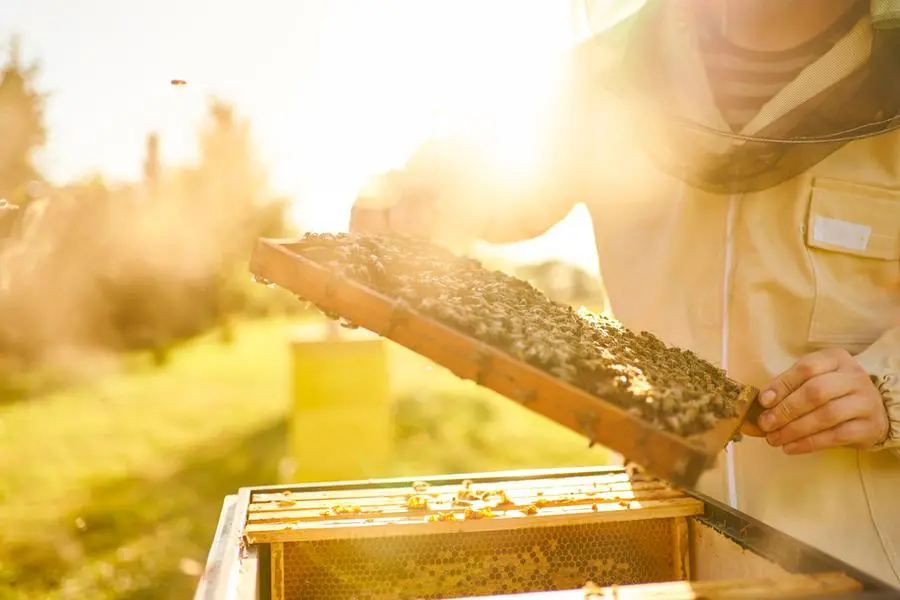PHOTO
Mashaer Muhammed Hassan grew up in a farm adjacent to a forest where her father ran a honey-producing business, which is where she first befriended bees - and learned to make honey.
Around 40 years ago, Mashaer's father decided to establish the first honey store in Al Ain, prompting the family's move to the UAE. Their venture proved to be a sweet success, leading to the expansion of their farming business in Al Ain, Hatta and other parts of the UAE.
“We imported honeybees from Sudan, contributing to the prosperity of our beekeeping endeavours,” said Mashaer.
Four decades later, Mashaer continues to share the sweetness of her childhood with the world at the Hatta Honey Festival.
The 8th edition of the festival started on December 27 and is scheduled to take place until the end of the month. The event saw many local farmers showcasing their honey straight from their farms.
Flower honey
Mashaer is now taking charge of the family business and enjoys being a part of different events and honey festivals to promote their honey.
A special kind they have is Neem honey, made from the nectar of neem tree flowers.
“This special honey is dark and has a tasty, natural flavour that reminds you of toffee and gingerbread, giving a warm and cosy feeling in your mouth,” said Mashaer.
Determined to do her best, Mashaer's daughter has teamed up with her to run the business, taking on responsibilities in marketing and operations. Mashaer is confident that her daughter will lead the business in the future once she learns all important skills.
Bees from Egypt
Another family that has been in the honey-making business for decades is the Rabie family.
Egyptian expat Rabie Rabie, said to Khaleej Times, "My father started this business in Egypt. 25 years ago, he started operations in the UAE by the name Alhor Honey Trading."
The family has several farms here in Abu Dhabi, Dubai and Hatta.
Specialising in two distinct honey varieties, Samr and Sidr, the Rabie family has mastered the art of beekeeping. “Bees from Egypt and the UAE play a crucial role in our honey production. We import bees from Egypt twice a year for the honey production.”
Their farm hosts numerous Samr and Sidr plants, where bees diligently collect nectar from the flowers. “The honey-making process in our farm spans from two to six months, offering different exquisite flavours,” said Rabie.
Emirati bees
Rabie said that the starting price for honey produced by Egyptian bees is Dh100, while the Sidr honey from UAE mountainous bees commands a premium price of Dh1,000. “The distinction extends to the honeycombs as well, with large combs crafted by Egyptian bees and smaller, more expensive combs by Emirati bees,” said Rabie.
“In our farms we produce 30 tonnes of honey every year with the help of Egyptian bees. On the other hand, with the Emirati bees, we make a bit less, about 2 tonnes each year,” said Rabie.
Reflecting on the family's honey-making journey, Rabie said: “The business was initially managed by my father, passing down to me and now my children is involved,” said Rabie.
Copyright © 2022 Khaleej Times. All Rights Reserved. Provided by SyndiGate Media Inc. (Syndigate.info).





















